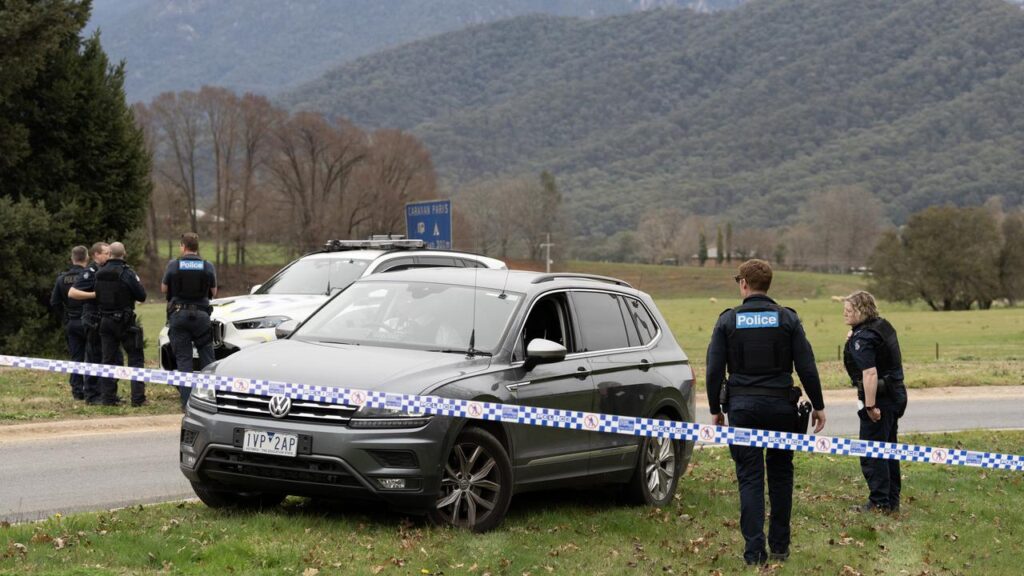Sovereign citizens: attack mirrors rise in radicalism
Savannah Meacham |

Police must come down hard on lawless sovereign citizens after Australia suffered a second extremist attack in a growing pattern of violence, an expert says.
Two detectives were shot dead while another was seriously injured when an alleged sovereign citizen opened fire on police executing a search warrant in Victoria’s rural town of Porepunkah on Tuesday.
The gunman, 56-year-old Dezi Freeman, remains on the run.
The attack is eerily similar to the 2022 Wieambilla shootings in remote Queensland when Constables Matthew Arnold and Rachel McCrow were ambushed on a rural driveway.

Brothers Nathaniel and Gareth Train, alongside his wife Stacey, opened fire and killed the constables while two officers fled for their lives.
All three Trains were shot dead by specialist police hours later after refusing to negotiate or surrender.
The similarities between Wieambilla and Porepunkah are alarming, extremist expert Joe McIntyre said.
“Both of these are in the regions. These are people who see a distrust of society and want to remove themselves from it,” the University of South Australia Associate Professor told AAP.
He believed the latest incident should not have come at a surprise, saying Freeman should have been on the authorities’ watch list.
“The accused shooter has a really long history of pseudo-law litigation, he looks to be one of the original versions predating COVID, where most were radicalised,” Dr McIntyre said.
“He should have been on a lot of lists. He needs to have been treated differently and that needs to be looked at going forward.”
A coronial inquest into the Wieambilla attack heard the Trains were motivated by religious extremism, believing police were persecuting them amid a battle between God and Satan.
The Trains were not deemed sovereign citizens, people who believe state authority is illegitimate and individuals have residual sovereignty.
Dr McIntyre said authorities had a narrow understanding of the term but believed Christian extremists the Trains should have been considered sovereign citizens.
“There was a missed opportunity that has been replicated (in Victoria), and these instances are unfortunately inevitable in this type of behaviour,” he said.
“Once the law is optional, then lawfulness itself becomes an option.”
Police must take a very different approach to sovereign citizens and come down hard when they breach laws such as tax fraud “rather than waiting for them to do a violent crime”.
“We need to be looking at the conduct they’re already doing which is unlawful,” Dr McIntyre said.
The federal government said the rise in sovereign citizen radicalism was a major concern.
“A lot of people went down the rabbit hole during COVID, and they never came back up,” Home Affairs opposition spokesperson Andrew Hastie told ABC Radio.
Queensland Police have extended its condolences to its Victorian counterparts and families of the detectives who “made the ultimate sacrifice in the line of duty”.
AAP